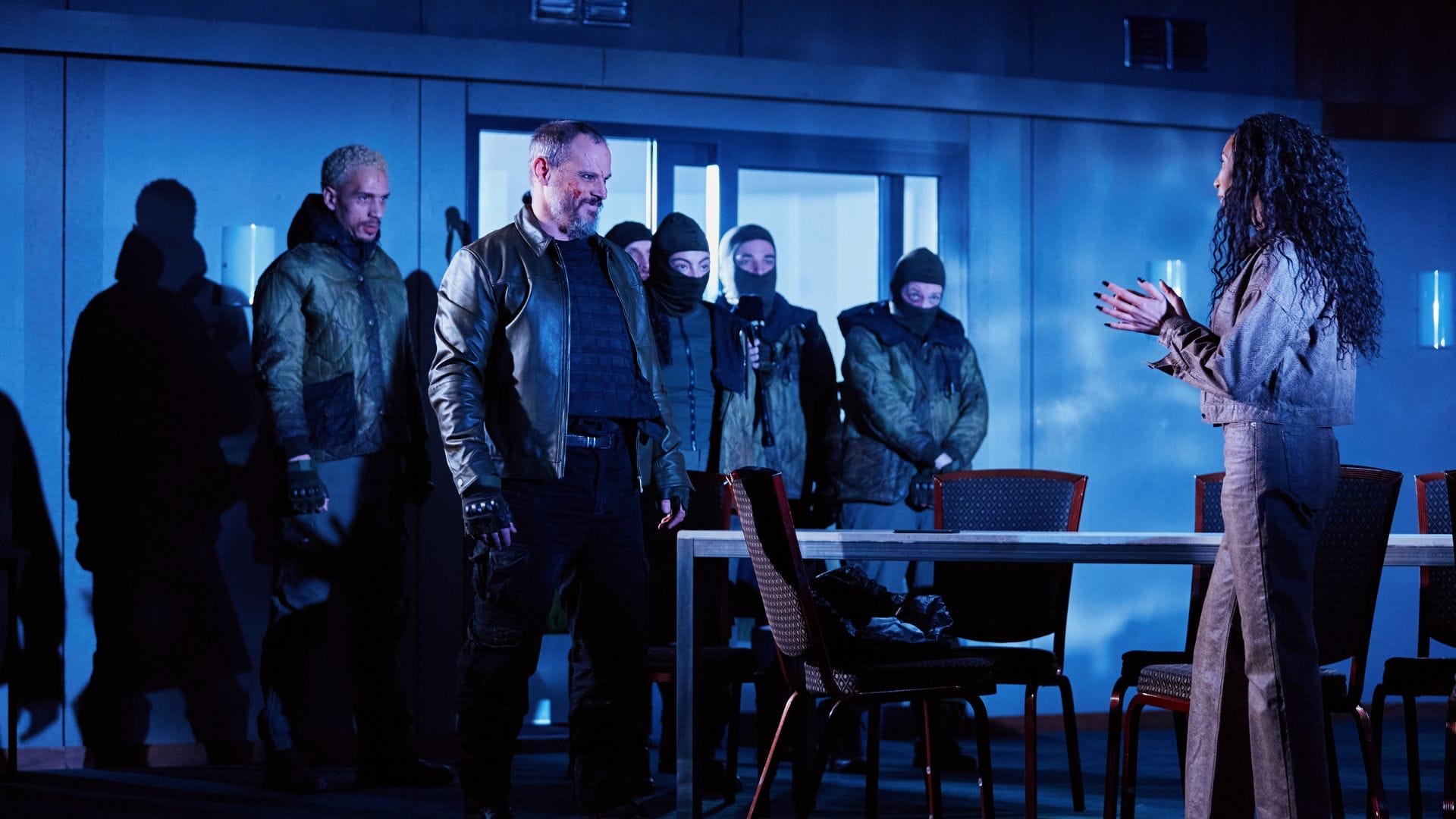 Following its Donmar Warehouse and West End run in 2024, Macbeth, directed by Max Webster and starring David Tennant and Cush Jumbo, releases its live-streaming film version.
Following its Donmar Warehouse and West End run in 2024, Macbeth, directed by Max Webster and starring David Tennant and Cush Jumbo, releases its live-streaming film version.
Webster’s production is, on the whole, wonderfully lucid, pure, and uncluttered. Though a very intense psychological horror thriller, it carries a mysteriously crystalline undertone. If you’re tired of those pretentious and self-consciously clever modern Shakespeare productions forever boasting their “new perspectives,” this is absolutely the one to see.
Instead of enforcing a heavy directorial interpretation, Webster tends to let the text itself shine through proper acting as well as modest design, which has already been proved as effective in his previous productions such as Fanny and Alexander (2018 Old Vic). On a sheer white board at centre stage and with a glass box serving as the back wall (designed by Rosanna Vize), the cast and musicians stand in a line, commenting and responding to what happens onstage, double-functioning like the chorus in Greek dramas.
Bruno Poet’s lighting (with Charlotte Burton as lighting associate) shifts between a cold, unyielding shade signalling the Macbeth couple’s inner turmoil, and natural light for the narrative to carry on. Shelley Maxwell’s choreography possesses a graceful simplicity, natural and spontaneous that fits the show’s overall aesthetics. The ensemble’s slow-motion makes you feel it truly has points other than mere formality.
One of the greatest differences between the film and the theatrical version is the use of headphones, specially designed by Gareth Fry (The Encounter) to intensify the play’s psychological horror. By amplifying our aural experiences, the witches become concepts in our minds rather than actual entities, like the devil whispering in our ear. Such an intimate experience might have been diminished in a cinematic environment, but overall, the horror still remains.
The film makes most of Macbeth’s soliloquies directed straight to the camera, with Tennant looking right into your eyes. This works unexpectedly well, uncannily breaking the fourth wall and adding another layer of unsettling horror. Meanwhile, it also makes the audience a mirror of the murderer’s conscience, faintly sparking a trait of bare sincerity. Such sincerity is also reflected in the couple’s relationship. While Jumbo excels as a sly, calculating Lady Macbeth, there’s nothing sexual or erotic between the two, but a pure sense of endearment and sorrowful compassion.
The production also includes some Scottish elements that garnish the show, such as bagpipes during the battle scene (directed by Ruth Cooper-Brown) and a meta-theatrical joke where the usher misrecognises the Porter’s (Jatinder Singh Randhawa) kilt as a “skirt.” This amusing encounter helps ease and balance the show’s fast-paced tension. Randhawa also delivers a breathtakingly arresting transition in seconds, from a drunk, meta-theatrical player swearing at the usher to the sombre, in-narrative Porter, eerily aware of the bloody conspiracy unfolding in the castle.
Kicking off with a scene where Macbeth is washing his hands full of blood, and summing up with him lying on the white board stained red, this Macbeth illustrates a sheer minimalist beauty and exemplifies how a Shakespeare production can be both thoroughly Shakespearean and absolutely modern at the same time.
Cinema Listings can be found here

















